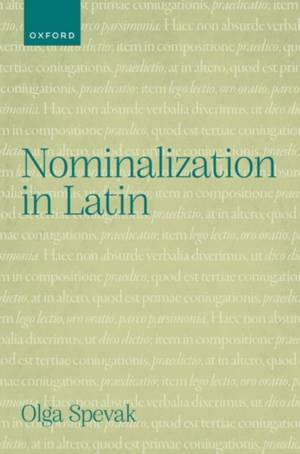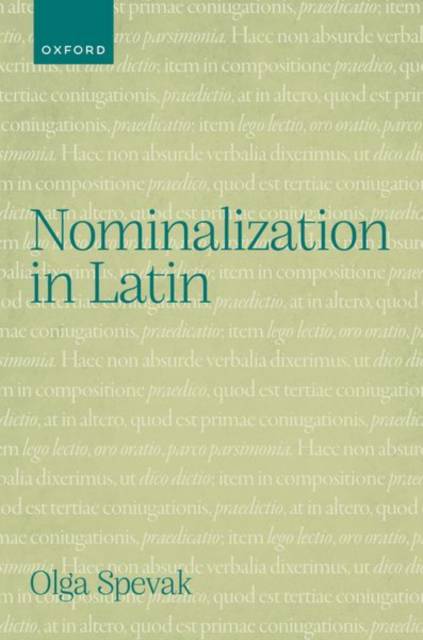
- Afhalen na 1 uur in een winkel met voorraad
- Gratis thuislevering in België vanaf € 30
- Ruim aanbod met 7 miljoen producten
- Afhalen na 1 uur in een winkel met voorraad
- Gratis thuislevering in België vanaf € 30
- Ruim aanbod met 7 miljoen producten
Zoeken
Omschrijving
This book investigates the properties of Latin nouns that have a systematic correspondence with a clause structure - referred to as verbal nouns - on the basis of data from a range of text types, both narrative and technical. Olga Spevak explores the much-debated concepts of 'abstract nouns' in general and 'verbal derivatives' in particular, and shows that syntactic parameters are helpful in establishing a better classification for what have traditionally been called nomina actionis. She adopts a descriptive approach and provides methods and criteria for identifying these nouns and for distinguishing them from nouns with concrete reference. This distinction is important both for a full understanding of Latin texts and for the presentation of the words themselves in dictionaries. The analysis reveals that verbal nouns, gerunds, gerundives, participles in participial clauses, and in part also infinitives, are competing expressions with a low degree of 'sententiality'; they serve to condense clausal expressions, to varying extents, and they form a system in which the elements are partly overlapping and partly complementary. The fact that Latin does not have a verbal noun available for every verb can therefore be understood as simply a facet of this complex system.
Specificaties
Betrokkenen
- Auteur(s):
- Uitgeverij:
Inhoud
- Aantal bladzijden:
- 272
- Taal:
- Engels
Eigenschappen
- Productcode (EAN):
- 9780192866011
- Verschijningsdatum:
- 14/10/2022
- Uitvoering:
- Hardcover
- Formaat:
- Genaaid
- Afmetingen:
- 164 mm x 237 mm
- Gewicht:
- 580 g

Alleen bij Standaard Boekhandel
+ 370 punten op je klantenkaart van Standaard Boekhandel
Beoordelingen
We publiceren alleen reviews die voldoen aan de voorwaarden voor reviews. Bekijk onze voorwaarden voor reviews.











